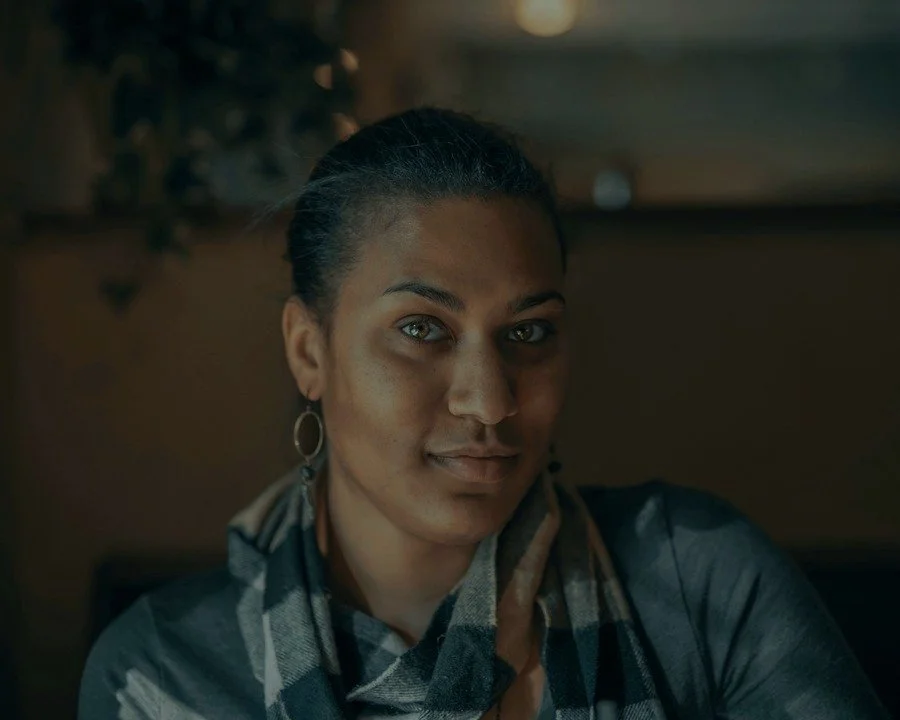The journey to find yourself has not been easy
You might find yourself moving through the world with a certain kind of vigilance, carefully monitoring how you’re perceived, subtly adjusting your expression, choosing your words more cautiously than others seem to. Or perhaps you’ve done the work: you’ve come out, you’ve named your truth, but something still feels unsettled. Old shame shows up at unexpected moments. Relentless comparisons to others or painful questions about belonging may flare up. Relationships, even with those closest to us, feel more distant than they should. Or a kind of heaviness sets in when you’re alone, even if your life looks “fine” from the outside.
Many LGBTQ+ individuals carry burdens that were never openly acknowledged. The fear of rejection. The confusion of being glamorized by some and erased by others. The hurt of not knowing whether it was safe to be fully oneself, perhaps a pain carried since childhood. These experiences don’t always take the shape of trauma as we commonly understand it, but they leave traces. It is part of the ways we attach, we defend, or long to be seen and the way we hide.
There’s nothing wrong with you for feeling this way
The struggles you're facing—whether they show up as anxiety, depression, relationship difficulties, or a persistent sense of being off—make sense when viewed in the context of a world that hasn’t always known how to hold difference with care. Many LGBTQ+ people have had to navigate environments where their identities were tolerated but not embraced, where self-expression was conditional, or where silence felt safer than honesty. Some others may have feel pressured to find a label, to find a definitive answer instead of being allowed to hold an open question. These experiences don’t just stay in the past—they become woven into how we think, relate, and feel in the present.
Whether you've faced explicit rejection or more subtle forms of invalidation—being asked to educate others, made to feel like a curiosity, or constantly expected to explain yourself—these experiences accumulate. They shape the nervous system, the imagination, and the unconscious. Even celebrations of identity can sometimes flatten it, reducing the richness of your inner world to a single label or performance. As a result, the person you are, the one you are always becoming, may feel trapped or unseen. What you feel now may reflect not only past pain but a long-standing need to be met fully, not just accepted. And there is nothing wrong with you for carrying that need.
Our take on LGBTQ+ affirming therapy
In LGBTQ+ counseling at Fermata Psychotherapy, we approach identity as something that is not just social or political, but psychological: something that lives inside of you, shaped by attachment, longing, loss, and desire. Sexual and gender identity, for people of all genders, are not entities set in stone but expressions of the creative process of becoming who you are. A more important question than what you identify as you do or why that is, is how you experience yourself, how you feel in your mind and your body, how you can shape your own identity in a way that is authentic, the result of your unfolding creativity.
Psychodynamic therapy looks at how early relationships live on inside of us—what expectations we carry into our current connections, what parts of ourselves we had to bury in order to stay close to others, what fantasies and fears have been silently organizing our inner world. For LGBTQ+ individuals, these inner dynamics are often tangled up with experiences of visibility and invisibility, idealization and rejection, pride and shame.
In therapy, we don’t rush to resolve these contradictions. Instead, we meet you where you are, and respect the emotional pace and unfolding of your process. Whether your identity feels settled or still in motion, we honor its depth, complexity, and flowing nature. We recognize that gender and sexuality are not fixed destinations, but evolving terrains of experience. Your sense of self may shift over time—and that movement is not a problem to be solved, but a richness to be explored.
Our work is informed by the understanding that identity may offer structure and clarity, but it can also obscure deeper psychic truths. Sometimes a rigid identification arises to protect against uncertainty or fragmentation. Other times, the pressure to “know who you are” externally cuts short the internal work of becoming. We’re not here to question the legitimacy of your identity—but to listen to what that identity expresses, what it shields, and what it might make possible.
In this sense, we see gender and sexuality as dynamic, layered, and fluid—not reducible to categories, yet deeply meaningful to the psyche. We don’t need to fix you in place. We’re interested in being with you through your process: honoring your lived experience, tracing its unconscious roots, and making room for parts of you that may not yet have had language, recognition, or space to breathe.
The therapy relationship itself becomes a living site of this exploration. You may find yourself hiding in therapy the way you hide in life. Or testing whether your therapist will really see you. Or discovering feelings you didn’t know you had. These moments are not detours—they’re invitations to deeper contact with yourself and another person. And over time, they can create a different kind of aliveness: not one that conforms, but one that feels more true.
Commonly asked questions
I’m not sure therapy will help—I’ve already done so much work on myself
That may be true. But the kind of work we do here is different. It doesn’t just affirm your identity; it explores the emotional architecture beneath it. Even if you’ve come far, therapy can offer a new depth of understanding—especially around the parts that still feel stuck, disconnected, or unresolved.
I’m afraid I’ll be misunderstood—or worse, judged.
That fear is deeply understandable. Many LGBTQ+ individuals have had to carry the emotional labor of educating others, even in spaces meant to support them. At Fermata, we offer a different experience: one where your therapist is not only affirming but trained to listen beneath the surface. You don’t need to explain or justify who you are—we’ll explore together what it’s like to be you.
I don’t want therapy to focus only on my identity
Neither do we. Your identity matters—and so does everything else. LGBTQ+ counseling isn’t about reducing you to a category. It’s about understanding the full scope of your inner life, including the parts that aren’t always visible or named. Your anxiety, your grief, your defenses, your longing—they all have a place here.
Why Fermata Psychotherapy is uniquely suited to help
At Fermata Psychotherapy, we offer LGBTQ-focused therapy that is grounded in depth and patient affirmation. We approach identity not as a checkbox, but as a story—shaped by unconscious processes, early attachment experiences, and relational dynamics that continue to influence the present. Our clinicians are trained in contemporary psychoanalytic approaches, including object relations, self psychology, and relational and intersubjective frameworks that allow for an appreciation of the complexity of your whole self.
We understand that LGBTQ+ individuals have unique experiences and particular emotional burdens, some of which are hard to name. We listen carefully—not just to what you say, but to what hasn’t been said yet. And we offer a therapeutic relationship that can hold the complexity, contradiction, and beauty of your inner world. If you're looking for LGBTQ+ counseling that goes deeper, where you're not just accepted, but understood. We're here to help you. Reach out when you’re ready.
book an appointment FOR LGBTQ+ THERAPY
Banner photo credit: Clay Banks



